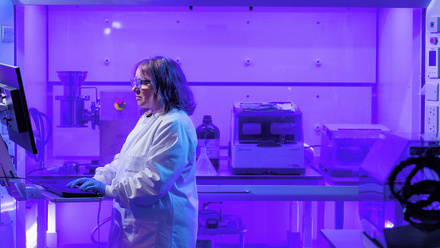MMIP Delivering the UK’s Life Sciences Manufacturing Strategy
Recent successes in supplying high-value medicines and in advanced therapies manufacture must be built on, if the UK is to win the global battle to attract commercial medicines manufacturing and reverse the loss of a major UK export industry.
A new report from the Medicines Manufacturing Industry Partnership (MMIP), ‘Delivering the UK’s Life Sciences Manufacturing Strategy’ shows that medicines and medical technology manufacturing currently deliver annual exports worth over £30 billion for the UK, on top of making a £32.1 billion (gross value added or GVA) contribution to UK economic output in 2019. This is the largest GVA contribution from the life sciences sector.
The UK has productive life sciences manufacturing clusters and recent significant investments made by companies in the UK show the value of the sector for regional economic development.
However, the UK has also seen a significant loss of traditional medicines manufacturing capacity over the last 25 years, with 7,000 jobs lost and a fall in production volumes of 29% since 2009. It has also seen the global proportion of capital investment fall dramatically in the last few years.
Since 2010, the UK has fallen from 4th to 98th place in overall trade balance in pharmaceuticals, due to fierce global competition, with many similar countries, including Ireland, France and Germany, also focussing on boosting manufacturing productivity, output and exports.
The Government has set out its ambition to create a globally competitive environment for Life Sciences manufacturing investments as part of its Life Sciences Vision (LSV). There have been very positive government initiatives and investment programmes designed to support the sector such as the Life Sciences Innovative Manufacturing Fund and developing the Catapult innovation network.
The MMIP believes it can be a strong partner to Government in developing a clear, long-term vision for manufacturing growth to help the UK remain internationally competitive. Global competition for investment is growing as many other countries are seeking to boost medicines manufacturing post-pandemic.
The MMIP believes the UK can be a global leader in sustainable medicines manufacturing. There is an opportunity for the UK to lead global development, new technologies and metrics of medicines manufacturing sustainability goals for the NHS and companies.
Growing the manufacturing skills base is another key element to attract future investments is highlighted by the report. By 2026, cell and gene roles are predicted to increase by 117% since 2021, with bioprocessing roles set to rise by 151%.
We will need to develop a skills plan for thousands of people with the right skills to fill these roles, making sure that schools, universities apprenticeships and immigration visa programs support the future growth strategy.
The MMIP will work with Government on the areas set out in the report to deliver benefits for the economy, industry, and ultimately patients.





